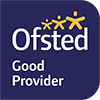Early Years Foundation Stage
Play underpins our delivery of the Early Years curriculum. Through play our children become active learners, explore and develop learning experiences which helps them to make sense of the world.
Children have the chance to explore ideas, learn how to manage feelings and resolve conflicts. They are given space to explore and discover, to take risks and make mistakes within a safe and secure environment. We nurture a sense of curiosity by encouraging children to ask questions, reflect and problem solve on their own and with others.
The EYFS staff create a child-focused environment which challenges, motivates and encourages learning through first-hand experiences. This method puts the children first and enables staff to plan the curriculum around the child’s needs and interests, while promoting the importance of the unique child.
The Early Years Foundation Stage comprises of 7 areas of learning – 3 prime and 4 specific areas.
The prime areas of learning are:
- Communication and Language
- Physical Development
- Personal, Social and Emotional Development
The specific areas of learning are:
- Literacy
- Mathematics
- Understanding the World
- Expressive Arts and Design
All EYFS staff are responsible for, and contribute to, the assessment of learning for all children through recorded observations. Observations are recorded on Tapestry, with links to ages and stages indicated. Parents have access to Tapestry to monitor how their child is progressing, and are encouraged to share experiences and learning from home on it.
Find out more information about our curriculum here:
Download our curriculum newsletters here:
Nursery
Reception

“There is a clear focus on the teaching of early mathematics and reading.”

“Pupils enjoy attending school.”

“There are a wide range of school clubs.”

“Leaders have considered what pupils might need to know to broaden their understanding of the world around them.”

“Teachers check what pupils have learned and remembered each term.”

“The residential visit to Robinwood encourages pupils to experience new challenges and work collaboratively with their friends.”

“Staff are well trained in teaching children to read.”

“Pupils say that behaviour is good.”

“Adults help pupils who fall behind.”

“Curriculum plans are well sequenced.”

“Pupils listen carefully to what adults say. They join in class discussions enthusiastically.”

“Pupils recommend the school to their friends.”

“There are respectful relationships between adults and pupils.”

“Subject leaders are knowledgeable about their subjects.”

“Pupils access a range of visits and activities beyond their own experiences.”

“Children start to learn to read as soon as they enter the school.”

“There is a strong team culture within the school.”

“Leaders have thought carefully about the curriculum plans they have introduced.”

“Senior leaders, alongside the multi-academy trust, have provided subject leaders with training.”

“Staff welcome the highquality training they receive. They feel proud to work in the school.”

“The early years environment is inviting and well organised.”

“Children settle into school quickly.”

“Staff work closely with professionals from external agencies to provide support for pupils with SEND.”

“Staff encourage
pupils to be independent from an early age.”

“Leaders work well
with members of the multi-academy trust to support staff.”

“Pupils support each other well when they are completing their work.”

“Teachers who are new to the school welcome the support they receive.”

“Pupils learn how to keep safe when using the internet.”

“The ‘Mountbatten 50’ challenges pupils to complete a range of interesting activities
before they leave the school.”

” Some teachers check carefully to find out which pupils are stuck and which pupils need further challenge during lessons.”

“Pupils say they feel safe in school.”

“The school is calm and orderly. Pupils walk around school sensibly and are courteous to one another.”

“Leaders and teachers make regular checks to see how well pupils with special educational needs and/or disabilities (SEND) are doing.”

“The school enjoyed recent success when the computing club won a local area competition using their coding skills.”

“Teachers appreciate the support they receive from subject leaders to help them improve their teaching.”

“Pupils enjoy learning about a wide range of subjects.”



